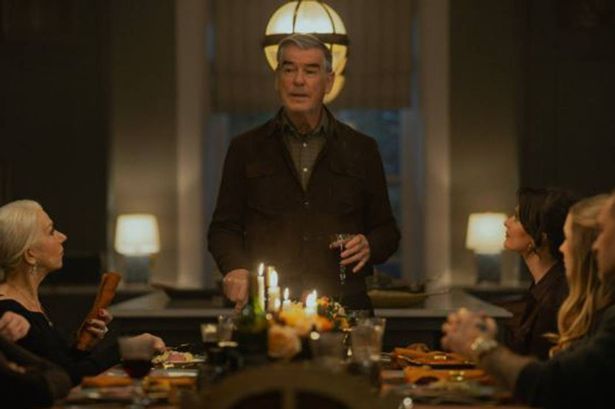Unveiling the Mystique of 'Twenty Men From Dublin Town' in MobLand's Folklore

MobLand airs on Sundays on Paramount Plus and the penultimate episode saw police finally swoop in on the Harrigan family. Undercover investigator Alice (played by Emily Barber) had risked her life to get DNA to frame the notorious gang. When she was confronted by Harry Da Souza (Tom Hardy), he let her go after she warned him police were ready to strike within one minute. Lo and behold, moments after she made her exit, the sirens could be heard approaching the family home in The Cotswalds.
Subheading: The Origins of the Folk Song
Maeve (Helen Mirren) and Conrad (Pierce Brosnan) were both arrested on suspicion of murder and were taken off in separate police cars. The husband and wife duo made a unique exit, as Maeve started singing Twenty Men From Dublin Town. This is not the first time Maeve had belted out the Irish folk song and viewers are keen to find out more about its origins. The song was written by Arthur Griffith, who was the founder of Sinn Fein. According to Irish Folk Songs, he wrote the 'rousing battle-song honouring the men in the Wicklow Hills after the failure of Emmet's rising'.
Subheading: The Historical Context
As for the history behind the song, Myles Byrne, a leader in Wexford in the Irish Rebellion of 1798, and Arthur Devlin helped guide Robert Emmet, an Irish Republican, orator and rebel leader, into the trackless Wicklows to avoid the forces of the Crown. About a week after Emmet's rising was crushed, arrangements began to be made for the escape of Emmet and Byrne to France. Irish Folk Songs reported: 'They had only, it appears, to wait safely in the hills until a suitable vessel could be secured to spirit them away. Demonstrating characteristic daring-and a usual lack of common sense-Emmet demurred. Instead, to be closer to his dying mother and his sweetheart, he took lodging in Harold's Cross under an alias in the house of a Mrs Palmer. It proved to be a fatal, if romantic, gamble... Major Henry Sirr of the Dublin Town Police was closing in.'